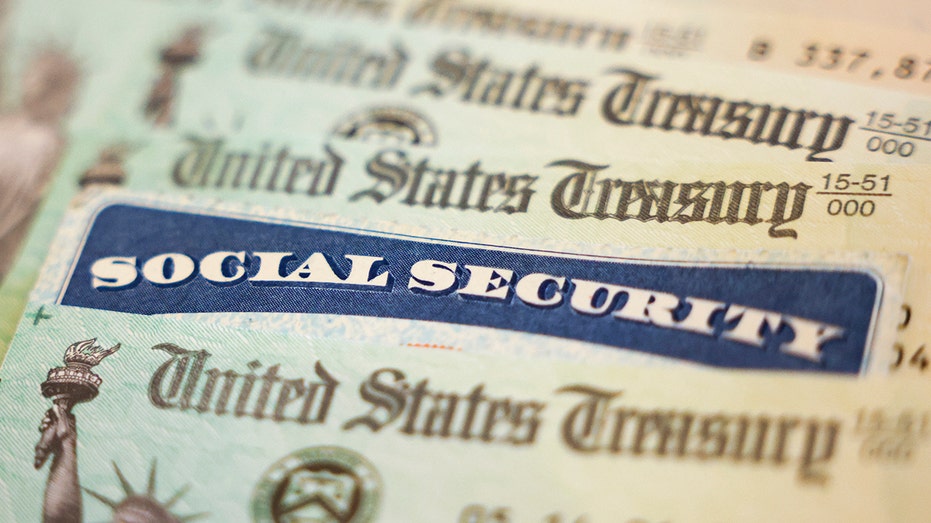Record-high Social Security increase could mean steeper taxes for some retirees
Inflation could push Social Security recipients into higher tax bracket
Economic expert encourages you to 'wait' to redeem Social Security benefits
Barron's managing editor Kristen Bellstrom reacts to younger generations preparing for the prospect of fewer Social Security benefits.
The biggest Social Security cost-of-living increase in 40 years could bring along an unwelcome side effect for retired Americans already grappling with inflation: higher taxes.
Although Social Security recipients receive a cost-of-living adjustment, or COLA, that is indexed to inflation, the amount of benefits exempted from tax has remained unchanged for decades. Since 1984, retirees have owed taxes on their benefits if their adjusted gross income — including up to 85% of their Social Security payments — is more than $25,000 if they are single or $32,000 if they are a married couple.
Individuals who earn more than $34,000 and couples who earn more than $44,000 can be taxed on up to 85% of their benefits.
Now, experts say the hottest inflation in a generation could ultimately push more seniors into higher tax brackets as a result of the 8.7% COLA increase — the biggest since 1981. It will increase the average monthly benefit by about $140.
SOCIAL SECURITY RECIPIENTS TO SEE BIGGEST COLA INCREASE SINCE 1981
"The combined income thresholds were originally established in 1984 and updated in 1993 but have not been indexed for inflation," said Tax Foundation senior policy analyst Garrett Watson. "This means that a larger portion of Social Security benefits will be taxed over time due to bracket creep, especially true in a time of high inflation."
More than 64 million Americans collecting Social Security will receive the bigger payments beginning in January, the Social Security Administration said.
But the decades-high benefit increase is not necessarily good news for recipients.
Higher Social Security payments are a bit of a catch-22. They can reduce eligibility for low-income safety net programs, like food stamps, and can push people into higher tax brackets, meaning retirees will pay more taxes on a bigger share of their monthly payments, according to Mary Johnson, a policy analyst at the Senior Citizens League, which conducted the analysis.
Some seniors may never have owed taxes on their benefits, but that's likely to change next year when they file their tax returns. In fact, the Congressional Budget Office has estimated the share of Social Security benefits subject to tax could grow by 10% this year and another 10% in 2023. In all, total income taxes paid on that money is projected to climb by 37% this year.
THE FED'S WAR ON INFLATION COULD COST 1M JOBS

In this photo illustration, a Social Security card sits alongside checks from the U.S. Treasury on Oct. 14, 2021, in Washington, D.C. (Photo illustration by Kevin Dietsch/Getty Images / Getty Images)
On top of that, the Social Security trust fund is estimated to receive more than $45 billion from taxing benefits in 2022 — a major increase from 2021, when it raked in about $34.5 billion, according to the program's trustees.
"There can be some very long-term effects to high inflation COLAs," Johnson told FOX Business. "It's like a no-win situation."
Higher monthly income can also reduce seniors' eligibility for low-income programs like SNAP, the Supplemental Nutrition Assistance Program (food stamps), Johnson said.
"These are income-based programs," she said. "Most, if not all of them, are easily administered through the states. If we’re forecasting a COLA that’s close to 9 or 10%, yes, of course, that’s going to affect not only your eligibility for low-income benefits, it’s going to for everyone else, for people who don’t get benefits."

A shopper looks at organic produce at a supermarket in Montebello, California, on Aug. 23, 2022. (Frederic J. Brown/AFP via Getty Images / Getty Images)
The average benefit in 2022 jumped by 5.9%, which amounted to a monthly increase of $92 for the average retired American, bringing the full amount to $1,657, the Social Security Administration announced last year. Soaring inflation has already eroded the entirety of the increase, however, with recipients losing 40% of their buying power since 2000, according to calculations by the Senior Citizens League.
The average monthly benefit would have to increase by $539.80 in order for retirees to maintain the same level of purchasing power as in 2000.
GET FOX BUSINESS ON THE GO BY CLICKING HERE
The group has pushed Congress to adopt legislation that would index the adjustment to inflation specifically for seniors, such as the Consumer Price Index for the Elderly, or the CPI-E. That index tracks explicitly the spending of households with people aged 62 and older.





















